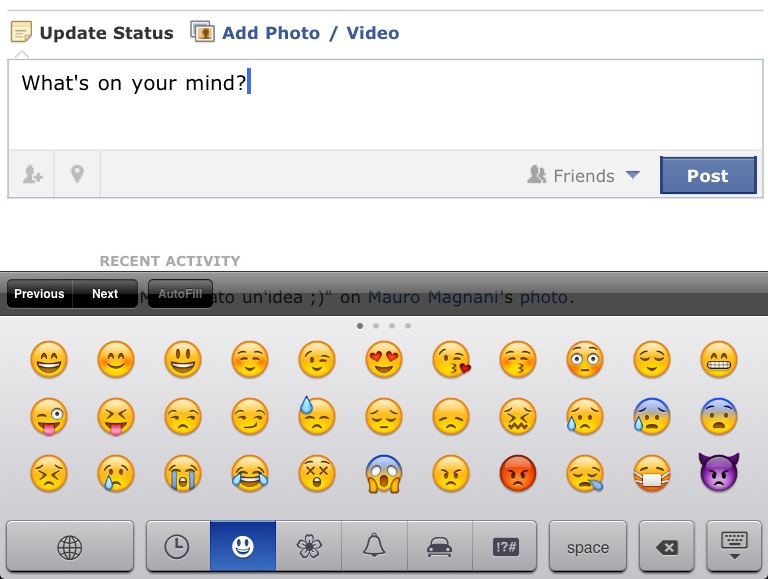But speaking the truth in love, let us grow in every way into Him who is the head – Christ. – Ephesians 4:15
It used to be people would express themselves in print using traditional means – old-fashioned standbys such as diction, syntax and punctuation. You could say, “You really should have made a better choice,” and few people would misunderstand the meaning. It was easy to interpret excitement (“What?! Billy fell into the well?!”) and equally easy to interpret pleasure (as in “You make me happy.”).
Enter the Emoji
My generation introduced the first emoji, the ubiquitous smiley face, back in the ‘70s. The smiling face was used to denote – go figure – happiness. A smiley-face sticker on a school paper meant you did a good job; a smiley-face written inside your yearbook meant you had a friend or a potential date. I got a lot of smiley faces on papers and not so many in my yearbooks.
Soon the smiley-face emoji had a friend – if you could call it that – in the sad-face emoji. Just as his feel-good friend represented all that was bliss and butterflies, the sad-face emoji represented doom, despair and agony.
You Need a Legend – or an Interpreter
Four decades later, as we become increasingly immersed in our world of social media and smartphones, the emoji family has grown. Exponentially. Instead of just a smiley face, you can have a smiley face with open mouth, a grinning face, a smiley face with smiling eyes or a smiley face with heart eyes among countless other variations but not to be outdone by variations on the sad/mad face. You need a legend to translate a text message.
Or maybe you need an interpreter. A once terse but to-the-point message now becomes, “You really should have made a better choice [insert smiley face here].” Or, “I don’t think that’s how Jesus would have acted [insert smiley face with smiling eyes here].” Or, “I already told you I’ll take care of it myself [insert grinning face here].”
So does that show you’re happy that someone didn’t make a better choice? Are you encouraging someone not to act as Jesus would have you act? Are you celebrating a territorial dispute? Somehow I doubt it.
Emojis have become our free pass to engage in passive-aggressive behavior. You take an in-your-face comment, dress it up with a cute emoji, and suddenly we’re back to bliss and butterflies. So happy together [insert musical emoji here] . . .
Use Your Words
Remember how in school there was always that kid who would act out when frustrated, prompting the teacher to say something like, “Sally, use your words”? We have lost our ability to communicate effectively and truthfully. We have lost our ability to confront and confide. Instead, we hide behind messaging features that mask our true intent and that render our message null and void.
I warn people that if they ask for my opinion, they’re going to get it. I believe in shooting straight. If the truth is too hurtful or too pointless to share, I choose silence. As a writer, words are very valuable commodities to me, so I choose them carefully. As a child of God, truth is a priceless commodity. But I know if I “have not love, I am a noisy gong or a clanging cymbal” (1 Corinthians 13:1). And no one likes to listen to that.
Are you angry? frustrated? spent? confused? disillusioned? just over it? Ask the Holy Spirit to give you – wait for it – the words to say. He will guide you in all truth. And that makes God smile.



It’s hard to find someone who’s willing to engage in “conversation” since the advent of “texting” 🙂